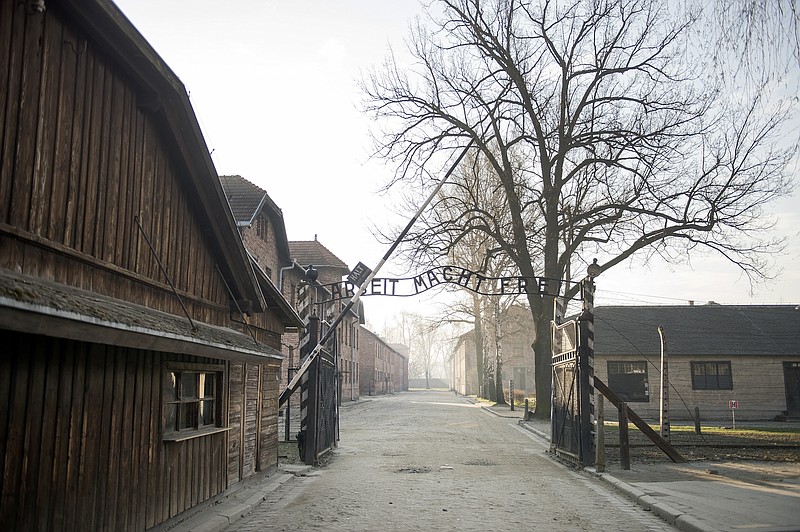I thought of this saying on Jan. 27, International Holocaust Remembrance Day: "History repeats itself. So you might wanna pay attention." A comment from the U.S. Holocaust Memorial Museum resonated with me: "As we are witnessing an alarming rise of antisemitism around the globe, it is more important than ever for us to recognize the critical lessons of Holocaust history as we commemorate the victims and honor the survivors." At the same time, there is growing noise about the "Holocaust Industry," which asserts the American Jewish establishment exploits the memory of the Nazi Holocaust for political and financial gain and to further Israeli interests.
Efforts to minimize and outright deny the millions of victims of the Nazis' Holocaust surface daily. But as antisemitism intensifies around the world, we must acknowledge and understand its roots and impact over centuries. I was heartened to see a packed room for the presentation on this history by Brendan Murphy, professor at Atlanta's Maris University. Hosted jointly by Mizpah Congregation and Holy Spirit Catholic Church and organized by Mizpah congregant Jed Mescon, we were transfixed by Murphy's in-depth analysis of the origins of antisemitism.
When Murphy was awarded the 2016 Distinguished Educator of the Year Award by the Georgia Holocaust Commission, he correctly said, "Holocaust education is a humanizing endeavor, a journey through the past that helps us reconsider how we understand ourselves as human beings. It's a subject that should engage the heart, help develop better judgment and teach empathy."
Analyzing the words of the Gospels, the statues in cathedrals, the writings of Martin Luther, Murphy demonstrated how Jew hatred began as a political strategy to establish, validate and recruit to Christianity. But over time, conspiracy theories were adopted and augmented, including Jewish deicide: Jews as Christ killers. Further, Jews were children of Satan, having broken with the divine by not recognizing Jesus as the messiah. And the blood libel, where Jews were accused of drinking Christian children's blood, fueled a deadly, ongoing hatred.
When Murphy concluded with why we should have hope, my heart soared. He talked about the 1960s Second Vatican Council which formalized new relationships with nonChristians. Its Nostra Aetate pronouncement rejected the theory that Jews killed Christ and underscored that the Jewish covenant with the divine was ongoing. Murphy explained that he was bringing together young Catholic, Jewish and Muslim students to meet and discuss faith. He's creating a new generation of interfaith diplomats. They'll be among our most valued leaders of the future.
Murphy inspired me as I prepared for my next event at Covenant College. I'd been invited to share my father's wartime letters and those of a Polish Holocaust survivor. Yes, it was emotional, but I was honored. First-hand accounts make history come alive. My intent in doing that was to help protect students against Holocaust trivialization and denial.
Judging from their questions, the presentation did more than that. Several students are now inspired to write their own family's history in countries decimated by war and persecution. They're letting the history within them rise to the surface, helping ensure that the truth is known. That's how to prevent history from repeating itself, and we should all participate.
Contact Deborah Levine, an author, trainer/coach and editor of the American Diversity Report, at Deborah@AmericanDiversityReport.com.
